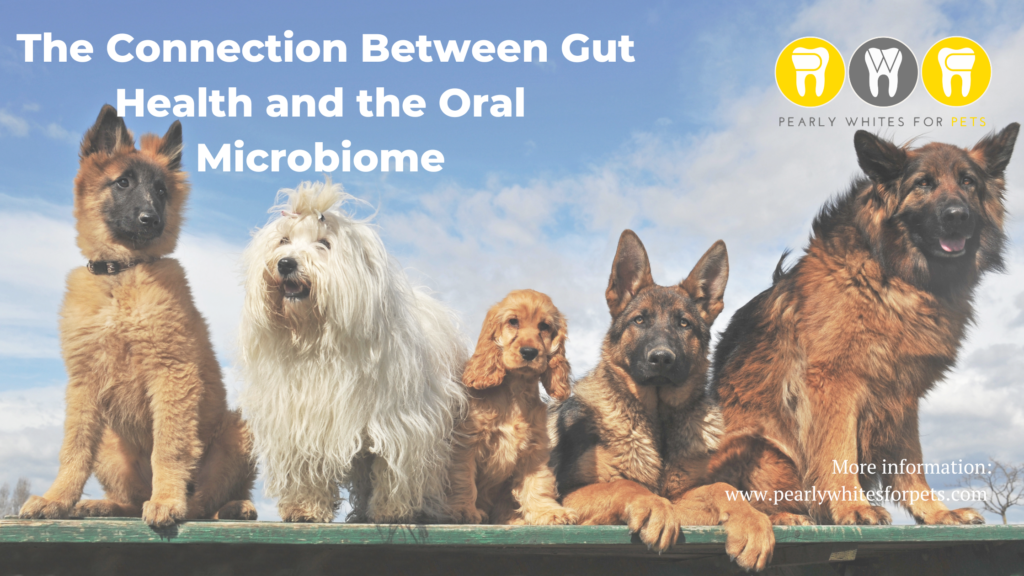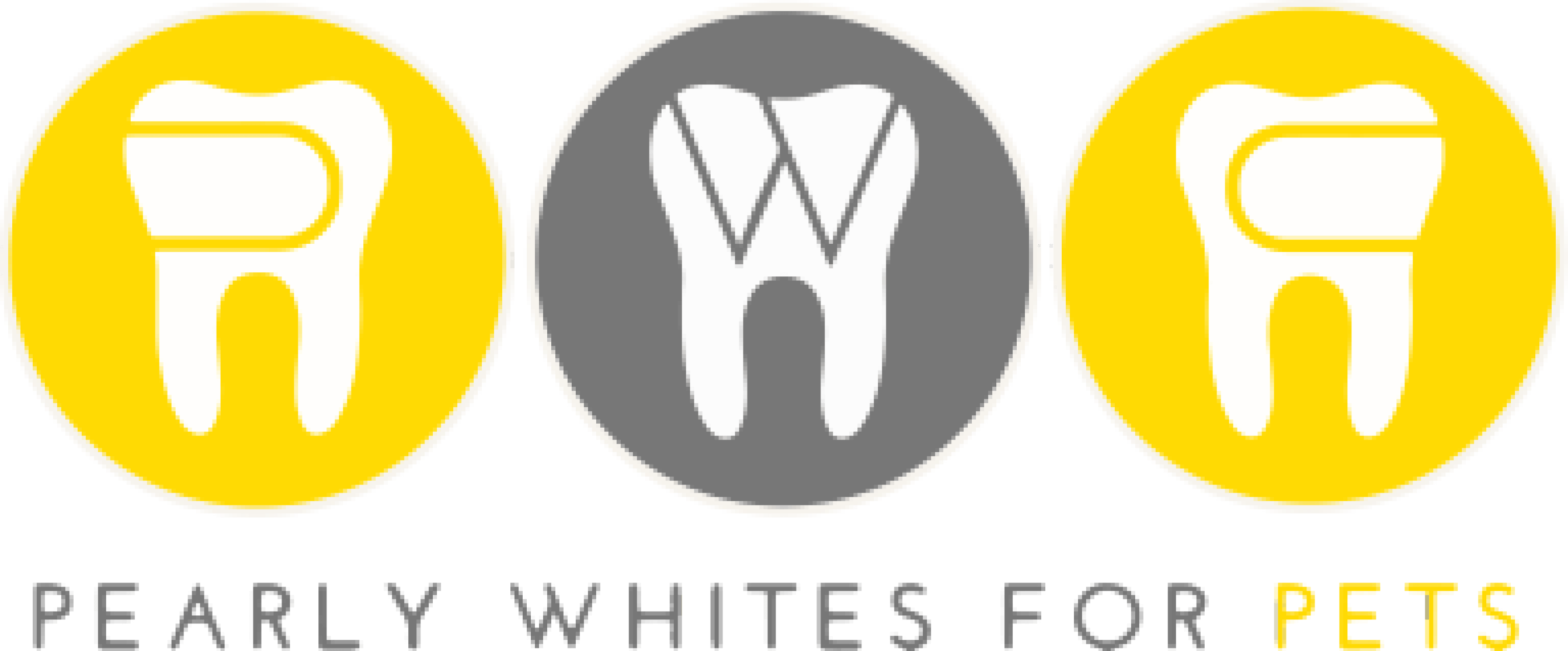
We all know that what we put in our mouths has a direct connection to what then happens in our gut. But did you know that the reverse is also true, that what is happening in our gut is directly related to what is in our mouths? The oral microbiome has a direct impact on the health of the gastrointestinal system and the same is true for our beloved feline and canine companions.
Many pet owners have been told that part of the key to their cat or dog’s longevity lies with maintaining good oral hygiene. Scientists have been studying oral bacteria for nearly 400 years, trying to understand what species live in different areas of the body and how they impact overall health. With increasing rates of global diseases, bacteriology, the branch of microbiology that studies bacteria, is more important to understand than ever before, including in veterinary medicine.
What is a Microbiome?
Microbiome is a collective term for all the trillions of bacterial, fungal and viral microbes that naturally live inside your pet’s body, on their fur and skin, and inside their mouth.
Microbes may be microscopic in size but the effects they have upon overall health are big.
While many people tend to assume microbes are a bad thing, they each play a specific role in keeping your pet healthy. Bacteria, for example, aid in digestion, help to maintain the immune system and good bacteria are needed to fight off bad bacteria.
An imbalance of both good and bad bacteria in cats and dogs sends an inflammatory signal to the immune system, causing a variety of health ailments throughout the body, including in the mouth.
Microbiomes in the Gut and Mouth
Microbiomes are found all over the body but the microbiome in the gut is the largest, followed by the oral microbiome. Their size indicates their impact upon your pet’s overall health and wellbeing.
The gut microbiome is responsible for digestion and nutrient absorption, hosting the metabolism, protection against pathogens and directing the immune system throughout the body. A healthy gut can also contribute towards fighting off inflammation in the body, including the intestinal tract and leading up to the mouth, where bacterial species work to protect this opening to the outside world against potential pathogens. In other words, the health and function of the gut is vital for overall health and wellness.
Oral health can directly impact your pet’s gut health, and vice versa. An overgrowth of bad bacteria in the mouth can lead to chronic issues in the gut. Bacterial communities within the body are prudently balanced and any imbalances are directly linked to diseases. In the oral microbiome, these diseases can be present as gingivitis or cavities in the teeth, hence why brushing your pet’s teeth is so important. Early signs of digestive diseases can sometimes be detected in your pet’s mouth.
Stages of Dental Disease
Gum disease, which is progressive and starts as gingivitis, advances as plaque build-up, and results in periodontal disease, is the leading health issue affecting adult dogs.
Gingivitis, evident from a thin red line on the gumline where it meets the teeth, causes inflammation which leads to gum tissue damage and will progress further if left untreated.
In worst case scenarios, breakdown of the jawbone can eventually occur, resulting in lost teeth. Dental disease causes severe halitosis and affects other organs in the body. Studies have shown that periodontal disease has been linked to heart, liver and kidney disease in dogs.
The key to preventing gingivitis, fighting off inflammation of the gums, lies in a healthy balance of bacteria in the oral microbiome.
Bacteria and the Microbiome
Scientists estimate half of the bacteria that lives in the mouths of dogs are also found in the mouths of cats, however, cats only have about one third the types of oral bacteria when compared with that of dogs. Dogs have several hundred families of bacteria in their intestinal tract as well. Bacteria and other microorganisms outnumber the sum of a dog’s own cells by nearly 100 to 1!
But not all bacteria are bad!
When the bacteria in the microbiome are healthy bacteria, they deliver many health benefits to your pet. This harmonious relationship is called symbiosis. Beneficial bacteria play a key role in keeping gum tissue healthy, protecting against inflammation. Dogs consume over a trillion bacteria each day, some of which travel into the gastrointestinal tract, where they will either stay or be excreted, while others remain in the mouth and colonize the plaque on your pet’s teeth. Either way, the bacteria that enters your dog’s mouth are continuously planting the bacterial colonies that reside in the microbiome of the gut, making them critical to your pet’s overall health and immune system. Subsequently, if the bacteria in the oral microbiome is not beneficial and healthy, then the bacteria in the gut microbiome will not be healthy either!
When the colonies of good and bad bacteria must compete for space in your pet’s mouth, the bad bacteria will migrate elsewhere in the body, including into the lymphatic system, blood vessels and eventually to your pet’s organs. This condition is called bacteremia. The toxic by-products from the harmful bacteria will cause inflammation, eroding the cells that line the wall of the gut, at which point more harmful bacteria will invade the body, causing chronic inflammation, which ultimately causes disease to other organs.
A study in cats with irritable bowel disease demonstrated that healthy cats had a much higher bacterial population in their gut compared to cats with IBD. Another study showed that healthy skin of dogs was inhabited by a far more diverse, beneficial bacterial population than the skin of dogs suffering from allergies.
Maintaining a symbiotic relationship between the beneficial and harmful bacteria in both the gut and the oral microbiome is key to the overall health of your pet.
Effect of Antibiotics on the Microbiome
Antibiotics destroy all bacteria, beneficial and otherwise, which often has devastating effects on the microbiome of your pet. Increased use of antibiotics to treat a wide variety of health issues in pets has led to an increased demand of prebiotics and probiotics, to counteract the negative effects of antibiotics within the body.
Prebiotics are non-digestible, plant-based food sources that support increased beneficial bacteria already residing within the gut, enhancing digestive function. Probiotics provide the body with an increase of live, beneficial bacteria to support overall health. Synbiotics are products that provide both prebiotics and probiotics.
How can you support a healthy oral microbiome for your pet?
More than half the tooth exists beneath the gum line, therefore brushing alone is not enough to protect your pet’s mouth from harmful bacteria. Teeth brushing is certainly beneficial and should be done regularly to promote the overall health of the mouth. It is an uncomplicated way that you can engage in your pet’s overall wellness from home. But there are many more ways in which you can support a healthy gut and oral microbiome for your pet.
- Brush your pet’s teeth with a naturally sourced toothpaste that does not contain chemical ingredients that can harm bacteria.
- Use a water additive to help neutralize harmful bacteria and prolong the benefits of cleaning your pet’s teeth.
- Give your pet synbiotic supplements to repopulate the beneficial bacteria and help to restore the natural microbial balance in their mouth. Probiotics, particularly Lactobacillus, have been proven to prevent the colonization of harmful bacteria, changing the pH of the mouth and supporting the immune system. Lactobacillus species have also shown to be proactive against inflammation that causes gingivitis and periodontal disease.
- Find a dental chew that your pet likes and use them as you would treats, to reward or reinforce good behaviour. Dental chews are great for helping prevent tartar build-up and keeping your pet’s breath fresh.
- Dental toys can also be used as a part of your regimen to support oral hygiene for your pet. Natural rubber nubs on dental-specific toys can help to support healthy teeth and gums while your pet plays!
Studies show that synbiotic supplements can help to aid in digestion, heart health, enhance immunity and decrease inflammation. There are many synbiotic products available that will help to restore bacterial symbiosis in the gut. Supporting your pet’s gut microbiome will promote many health benefits, including healthy teeth and gums, with a rewarding pearly white smile.
